Feed Your Brain With These Fascinating Facts
Nathan Johnson
Published
09/08/2016
in
wow
cool stuff
- List View
- Player View
- Grid View
Advertisement
-
1.
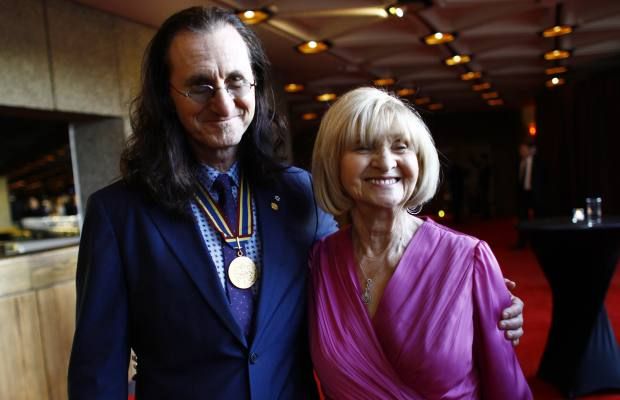 Geddy Lee’s parents fell in love in Auschwitz at the age of 12 or 13. His father would bribe the guards to give his mother food or clothes as a sign of affection His parents were Jewish Holocaust survivors from Poland who had survived the ghetto in their hometown Starachowice, followed by their imprisonment at Dachau and Bergen-Belsen concentration camps, during the Holocaust and World War II. They were about 13 years old when they were initially imprisoned at Auschwitz concentration camp, close to the same age as Anne Frank at that time. “It was kind of surreal pre-teen shit,” says Lee, describing how his father bribed guards to bring his mother shoes. After a period, his mother was transferred to Bergen-Belsen and his father to Dachau. When the war ended four years later and the Allies liberated the camps, his father set out in search of his mother and found her at a displaced persons camp. They married there and eventually immigrated to Canada.
Geddy Lee’s parents fell in love in Auschwitz at the age of 12 or 13. His father would bribe the guards to give his mother food or clothes as a sign of affection His parents were Jewish Holocaust survivors from Poland who had survived the ghetto in their hometown Starachowice, followed by their imprisonment at Dachau and Bergen-Belsen concentration camps, during the Holocaust and World War II. They were about 13 years old when they were initially imprisoned at Auschwitz concentration camp, close to the same age as Anne Frank at that time. “It was kind of surreal pre-teen shit,” says Lee, describing how his father bribed guards to bring his mother shoes. After a period, his mother was transferred to Bergen-Belsen and his father to Dachau. When the war ended four years later and the Allies liberated the camps, his father set out in search of his mother and found her at a displaced persons camp. They married there and eventually immigrated to Canada. -
2.
 Jean-Claude Romand pretended to work for the World Health Organization, fooling friends and family for 18 years. Instead of working, he hid in hotels to study medicine and maps of countries he claimed to visit. When afraid of being exposed, he killed his entire family and burned down his house
Jean-Claude Romand pretended to work for the World Health Organization, fooling friends and family for 18 years. Instead of working, he hid in hotels to study medicine and maps of countries he claimed to visit. When afraid of being exposed, he killed his entire family and burned down his house -
3.
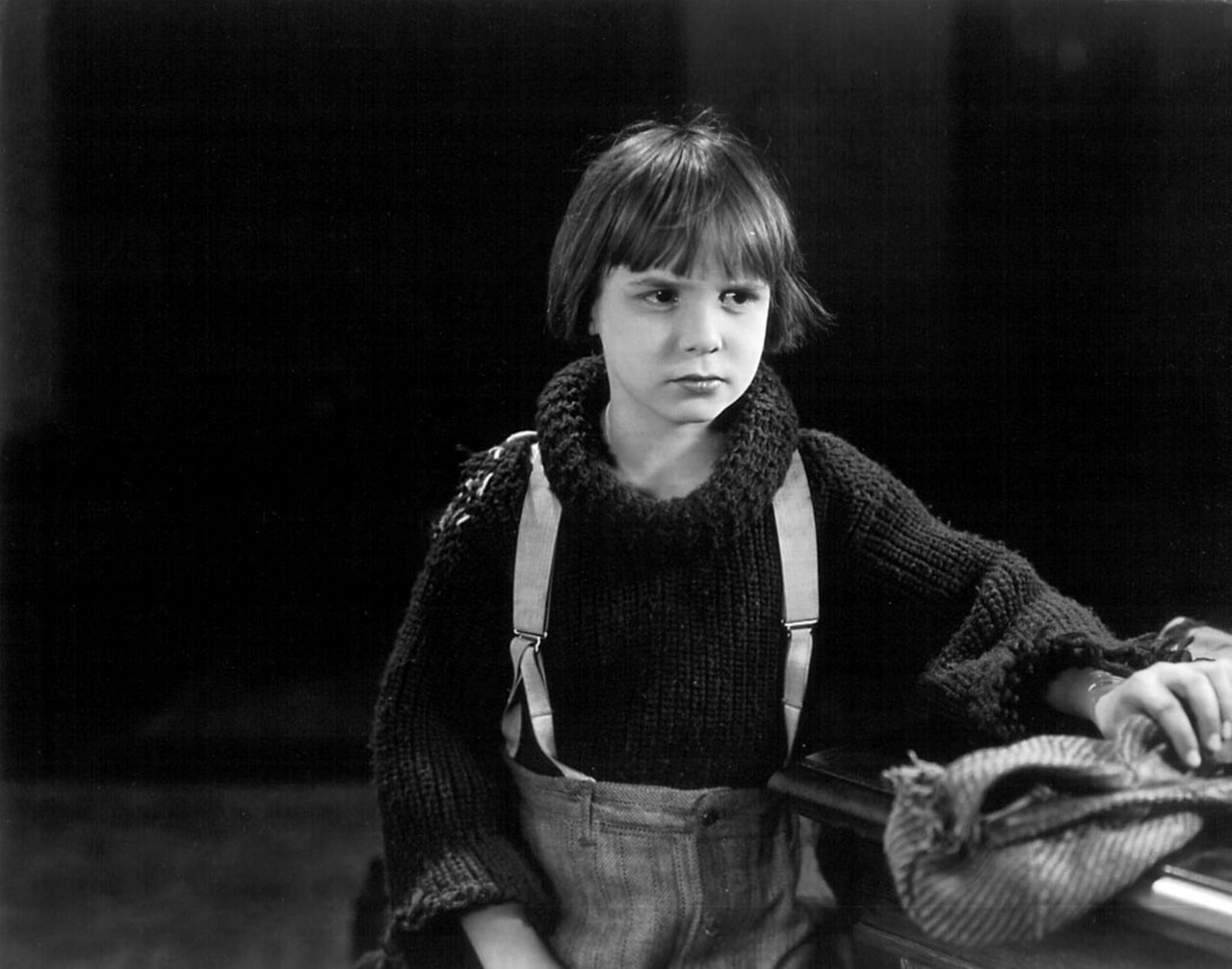 When child actor Jackie Coogan turned 18, he found out that all his money ($68 million) had been spent by his mother who argued that that every dollar a child makes before the age of 21 belongs to his parents. Coogan’s law was then passed to protect child actors
When child actor Jackie Coogan turned 18, he found out that all his money ($68 million) had been spent by his mother who argued that that every dollar a child makes before the age of 21 belongs to his parents. Coogan’s law was then passed to protect child actors -
4.
 Kesha, when auditioning for record labels, presented two demos: a “gorgeously sung, self-penned country ballad” and a “gobsmackingly awful trip-hop track”, allowing the label to decide which sound she should use as an artist
Kesha, when auditioning for record labels, presented two demos: a “gorgeously sung, self-penned country ballad” and a “gobsmackingly awful trip-hop track”, allowing the label to decide which sound she should use as an artist -
5.
 In 2015, two day care employees in New Jersey were imprisoned for running a toddler fight club among a dozen boys and girls aged 4-6
In 2015, two day care employees in New Jersey were imprisoned for running a toddler fight club among a dozen boys and girls aged 4-6 -
6.
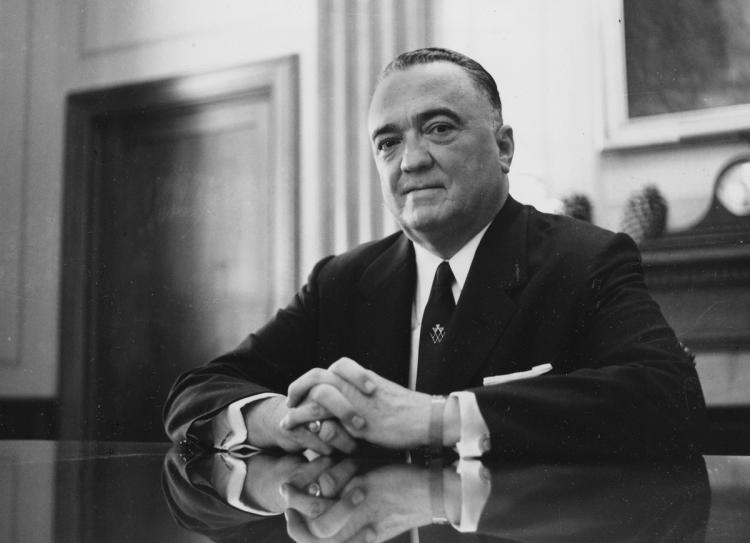 The FBI learned two of its informants were planning to murder a rival gangster. The FBI didn’t intervene, and the man was murdered. The FBI then stayed silent when four innocent men were convicted of the crime. By the time the truth was revealed, two of the four men had died in prison. The two surviving men and the estates of the other two sued in federal court and were awarded $102 million, split between the men and their families. Later in life and after his death, Hoover became a controversial figure as evidence of his secretive abuses of power began to surface. He was found to have exceeded the jurisdiction of the FBI, and to have used the FBI to harass political dissenters and activists, to amass secret files on political leaders, and to collect evidence using illegal methods. Hoover consequently amassed a great deal of power and was in a position to intimidate and threaten sitting presidents. According to biographer Kenneth Ackerman, the notion that Hoover’s secret files kept presidents from firing him is a myth. However, Richard Nixon was recorded as stating in 1971 that one of the reasons he did not fire Hoover was that he was afraid of reprisals against him from Hoover
The FBI learned two of its informants were planning to murder a rival gangster. The FBI didn’t intervene, and the man was murdered. The FBI then stayed silent when four innocent men were convicted of the crime. By the time the truth was revealed, two of the four men had died in prison. The two surviving men and the estates of the other two sued in federal court and were awarded $102 million, split between the men and their families. Later in life and after his death, Hoover became a controversial figure as evidence of his secretive abuses of power began to surface. He was found to have exceeded the jurisdiction of the FBI, and to have used the FBI to harass political dissenters and activists, to amass secret files on political leaders, and to collect evidence using illegal methods. Hoover consequently amassed a great deal of power and was in a position to intimidate and threaten sitting presidents. According to biographer Kenneth Ackerman, the notion that Hoover’s secret files kept presidents from firing him is a myth. However, Richard Nixon was recorded as stating in 1971 that one of the reasons he did not fire Hoover was that he was afraid of reprisals against him from Hoover -
7.
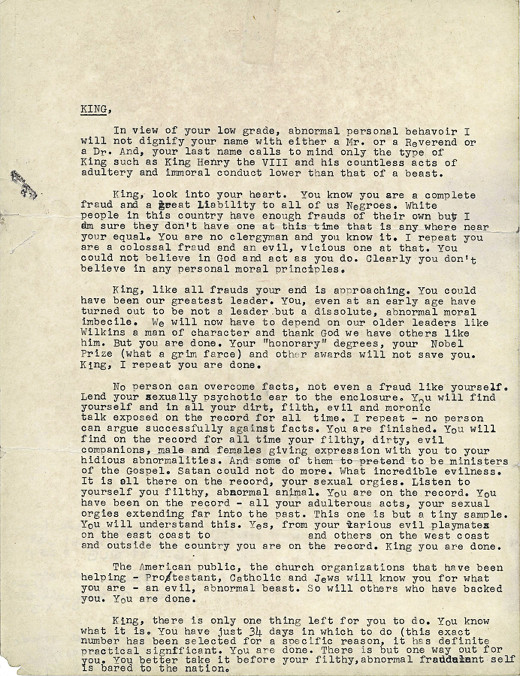 The FBI once wrote a letter to Martin Luther King suggesting he commit suicide after learning King would be the recipient of the 1964 Nobel Peace Prize
The FBI once wrote a letter to Martin Luther King suggesting he commit suicide after learning King would be the recipient of the 1964 Nobel Peace Prize -
8.
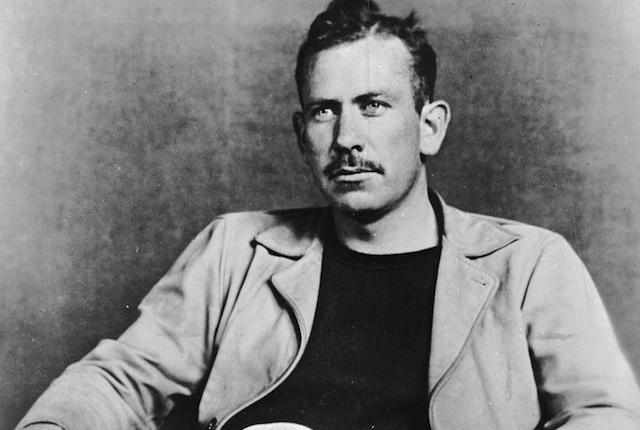 J. Edgar Hoover hated John Steinbeck so much, he used his influence to have the IRS audit Steinbeck every single year of his life.
J. Edgar Hoover hated John Steinbeck so much, he used his influence to have the IRS audit Steinbeck every single year of his life. -
9.
 North Korea Owes Sweden €300m for 1,000 Stolen Volvos and every 6 months Sweden sends them reminders. Sweden was one of the first to seize on the opportunity. The Stockholm and Pyongyang ties in the early 1970s arose out of a rare convergence of leftist and industrialist interest: local socialist groups wanted Sweden to formally recognise the new communist state, and businessmen wanted to exploit the region’s nascent mining industry. For Kim Il-sung and comrades, the western initiative represented an important step towards North Korea’s fulfillment as a global force to be reckoned with. It was no coincidence that journalist Lovisa Lamm Nordenskiöld and former diplomat Erik Cornell, two of the main chroniclers of the short-lived trade adventure, both settled on the word “paradise” when describing North Korea’s self-image during the late 1960s and early 1970s. Given the nation’s success, that was simply the only word that would do, according to the propaganda machine. Lamm Nordenskiöld suggests that the nation soon felt compelled to legitimise this edenic self-image with grand industrial projects and architectural marvels, often with little regard for the costs. “There’s this disconnect between reality and the North Korean imagination,” she says. Small wonder that a regime so impressed with itself soon developed expensive taste. “Inside the 144 GL you sit on leather,” reads the unambiguous 1970s marketing material that Volvo likely sent its North Korean buyers. Together with contemporary industry giants Atlas Copco and Kockums, Volvo was one of the first European companies to foray into the North Korean market, and promptly received an order for 1,000 vehicles, the first of which were delivered in 1974. But less than a year later, the venture blew up at a Swedish-Korean industrial trade fair in Pyongyang, where it suddenly became clear that the Kim regime wasn’t actually paying for the goods it was importing – not even the machines it ordered for the expo. The bills were simply piling up.
North Korea Owes Sweden €300m for 1,000 Stolen Volvos and every 6 months Sweden sends them reminders. Sweden was one of the first to seize on the opportunity. The Stockholm and Pyongyang ties in the early 1970s arose out of a rare convergence of leftist and industrialist interest: local socialist groups wanted Sweden to formally recognise the new communist state, and businessmen wanted to exploit the region’s nascent mining industry. For Kim Il-sung and comrades, the western initiative represented an important step towards North Korea’s fulfillment as a global force to be reckoned with. It was no coincidence that journalist Lovisa Lamm Nordenskiöld and former diplomat Erik Cornell, two of the main chroniclers of the short-lived trade adventure, both settled on the word “paradise” when describing North Korea’s self-image during the late 1960s and early 1970s. Given the nation’s success, that was simply the only word that would do, according to the propaganda machine. Lamm Nordenskiöld suggests that the nation soon felt compelled to legitimise this edenic self-image with grand industrial projects and architectural marvels, often with little regard for the costs. “There’s this disconnect between reality and the North Korean imagination,” she says. Small wonder that a regime so impressed with itself soon developed expensive taste. “Inside the 144 GL you sit on leather,” reads the unambiguous 1970s marketing material that Volvo likely sent its North Korean buyers. Together with contemporary industry giants Atlas Copco and Kockums, Volvo was one of the first European companies to foray into the North Korean market, and promptly received an order for 1,000 vehicles, the first of which were delivered in 1974. But less than a year later, the venture blew up at a Swedish-Korean industrial trade fair in Pyongyang, where it suddenly became clear that the Kim regime wasn’t actually paying for the goods it was importing – not even the machines it ordered for the expo. The bills were simply piling up. -
10.
 Trees are able to communicate with each other through an underground network known as the ‘wood-wide web’. This system allows trees to loan sugar to neighboring trees, send warning signals about injury or disease, nurture their own offspring, and donate resources to conserve the forest.
Trees are able to communicate with each other through an underground network known as the ‘wood-wide web’. This system allows trees to loan sugar to neighboring trees, send warning signals about injury or disease, nurture their own offspring, and donate resources to conserve the forest. -
11.
 There are ‘porn sniffing dogs’ that are trained to find hidden thumb drives, hard drives and SD cards for child pornography cases. One such dog was used to help bring down Jared Fogle. Experts say there’s a common chemical in electronic storage media, a trainer in Indiana trained URL to become an expert in detecting that scent. In fact, URL’s trainer was the very same one who trained the dog who helped bring down former Subway pitchman, Jared Fogle, imprisoned on child pornography charges.
There are ‘porn sniffing dogs’ that are trained to find hidden thumb drives, hard drives and SD cards for child pornography cases. One such dog was used to help bring down Jared Fogle. Experts say there’s a common chemical in electronic storage media, a trainer in Indiana trained URL to become an expert in detecting that scent. In fact, URL’s trainer was the very same one who trained the dog who helped bring down former Subway pitchman, Jared Fogle, imprisoned on child pornography charges. -
12.
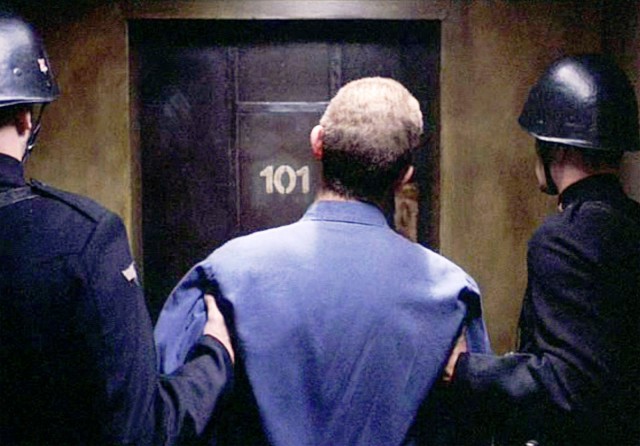 Room 101, the torture chamber in George Orwell’s 1984, was named after a meeting room at the BBC where Orwell would have to sit through tortuously boring meetings “You asked me once,” said O’Brien, “what was in Room 101. I told you that you knew the answer already. Everyone knows it. The thing that is in Room 101 is the worst thing in the world. By itself,” he said, “pain is not always enough. There are occasions when a human being will stand out against pain, even to the point of death. But for everyone there is something unendurable — something that cannot be contemplated. Courage and cowardice are not involved. If you are falling from a height it is not cowardly to clutch at a rope. If you have come up from deep water it is not cowardly to fill your lungs with air. It is merely an instinct which cannot be destroyed. It is the same with the rats. For you, they are unendurable. They are a form of pressure that you cannot withstand, even if you wished to. You will do what is required of you.”
Room 101, the torture chamber in George Orwell’s 1984, was named after a meeting room at the BBC where Orwell would have to sit through tortuously boring meetings “You asked me once,” said O’Brien, “what was in Room 101. I told you that you knew the answer already. Everyone knows it. The thing that is in Room 101 is the worst thing in the world. By itself,” he said, “pain is not always enough. There are occasions when a human being will stand out against pain, even to the point of death. But for everyone there is something unendurable — something that cannot be contemplated. Courage and cowardice are not involved. If you are falling from a height it is not cowardly to clutch at a rope. If you have come up from deep water it is not cowardly to fill your lungs with air. It is merely an instinct which cannot be destroyed. It is the same with the rats. For you, they are unendurable. They are a form of pressure that you cannot withstand, even if you wished to. You will do what is required of you.” -
13.
 South Korea’s national drink is soju, a clear alcohol, typically made from rice or barley, with an alcohol content of about 20 percent and a government-mandated price of about $1 per bottle, so all citizens can afford it.
South Korea’s national drink is soju, a clear alcohol, typically made from rice or barley, with an alcohol content of about 20 percent and a government-mandated price of about $1 per bottle, so all citizens can afford it.
- NEXT GALLERY
-
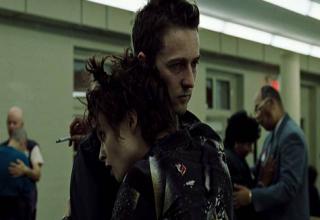
- 27 Interesting Facts About FIGHT CLUB -
Geddy Lee’s parents fell in love in Auschwitz at the age of 12 or 13. His father would bribe the guards to give his mother food or clothes as a sign of affection His parents were Jewish Holocaust survivors from Poland who had survived the ghetto in their hometown Starachowice, followed by their imprisonment at Dachau and Bergen-Belsen concentration camps, during the Holocaust and World War II. They were about 13 years old when they were initially imprisoned at Auschwitz concentration camp, close to the same age as Anne Frank at that time. “It was kind of surreal pre-teen shit,” says Lee, describing how his father bribed guards to bring his mother shoes. After a period, his mother was transferred to Bergen-Belsen and his father to Dachau. When the war ended four years later and the Allies liberated the camps, his father set out in search of his mother and found her at a displaced persons camp. They married there and eventually immigrated to Canada.
13/13
1/13
Categories:
Wow


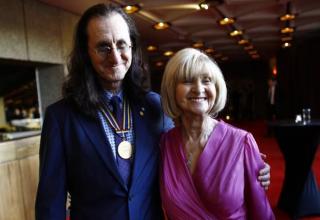

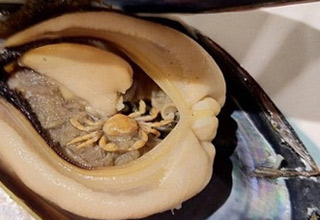


0 Comments